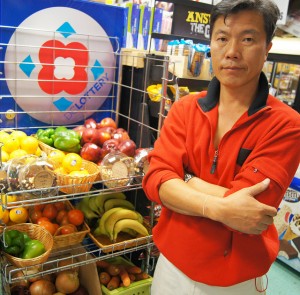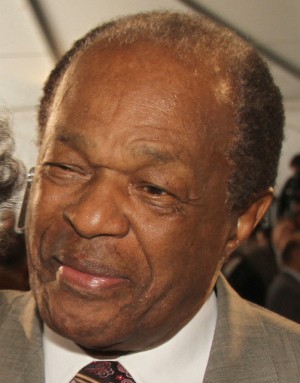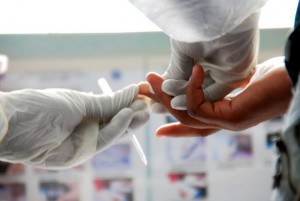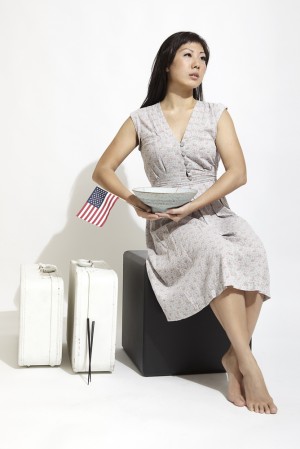
A D.C. shopkeeper poses by his "Healthy Corners" stand. D.C. Central Kitchen's program delivers fresh produce to corner stores.
The fallout continues over comments Councilman Marion Barry made about Asian-owned stores in Ward 8, calling them “dirty shops.” Barry has since issued an apology, but a coalition of local and national Asian American groups have called for more meaningful engagement.
Part of Barry’s follow-up comments focused on the unhealthy foods such stores sell, and he called for the owners to sell healthier foods and fix up their stores.
Gary Cha, owner of Yes! Organic Market and former president of the Korean American Grocers Association, appeared on Monday’s The Kojo Nnamdi Show to discuss Barry’s comments and relations between black and Asian communities in D.C.
Cha spoke with DCentric after the show and reiterated that a common perception of store owners among customers is that whatever goes into the register is profit. But many take home only 6 to 7 percent of sales, Cha said. If a store makes $1 million a year, the owners take away about $60,000 for their families.
“These are people who are barely getting by. I know several of them that to make ends meet, they don’t even have health insurance,” Cha said. “So when we ask them to renovate and do this and that, they probably don’t have the financial ability to do that.”
Stocking up with healthier foods, particularly fresh produce, does require investment by store owners. Refrigeration units are needed, which can be costly and difficult to accommodate in small stores. Also, small stores may not qualify for wholesale produce prices.










